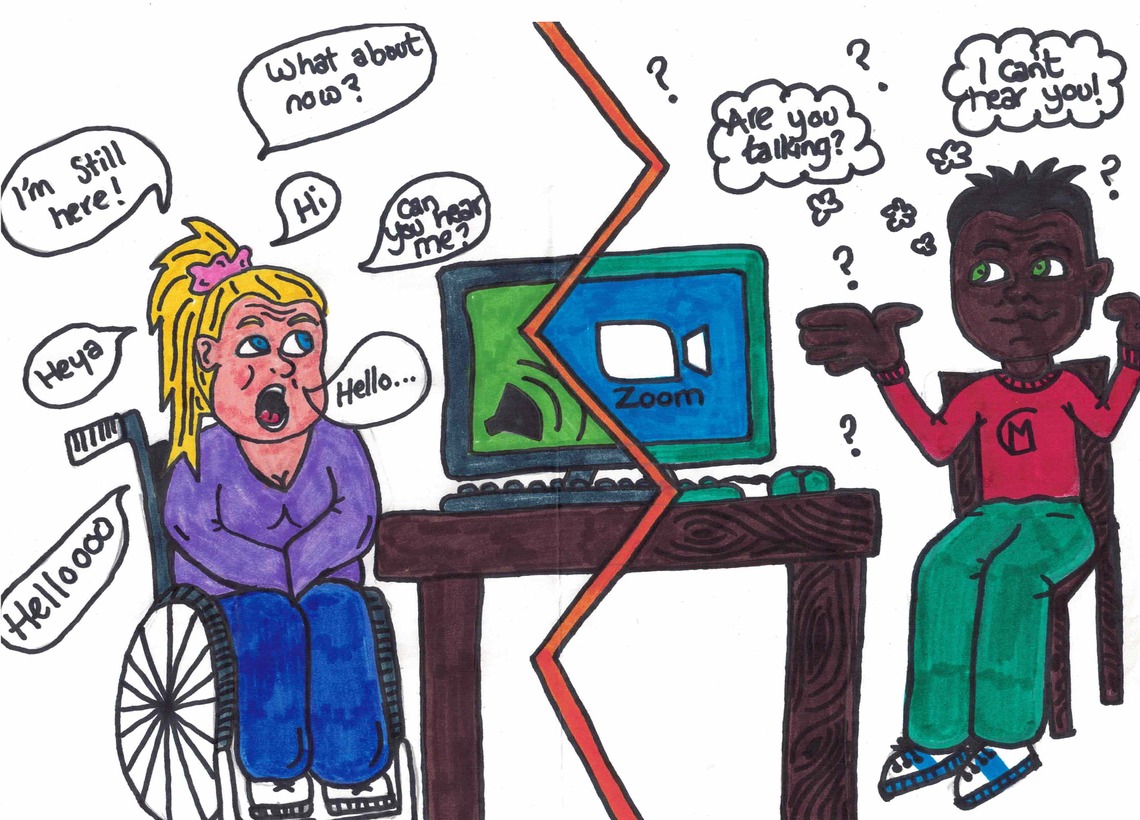This is a question I have sometimes addressed in Disability Equality Training. The question gets asked in different ways. Is one impairment better than another? Is someone with one type of impairment is better to have than another in terms of service provision? What would you prefer to lose – your body or your mind? Eyes or ears? Sensory wise I have Anosmia. Typically I’m left with the impression the question is really about separting us, keeping us apart. No blind people came to my segregated schooling. Its what society does isn’t it. Keeps us in boxes. Maybe some boxes are more closed than others and maybe we are equally at fault for creating and closing the boxes.
A difficult issue for me in my Disability Equality Training is how much to reveal about myself. Is it useful to tell people my life story? I guess I’ve already started going down that pathway by saying I have no sense of smell and I went to special school so here’s a kind of timeline of my diagnoses.
I was born with a life limiting illness which is fairly easy to manage today but way back then in the polluted town I was born became a matter of life and death. So off I went to learn how to walk down country lanes. ‘Always walk on the right and in single file when traffic approaches’. I am still surprised when other disabled people tell me how brutal this experience was for them yet the abusive nature of the system led directly to my communication difficulties, and a continued struggle with depression.
Later on following a sequence of family tragedies my anxieties grew and now I can add PTSD to the mix. According to Merton IAPTS there is research that shows physically disabled people will suppress mental health issues as we have enough to deal with as it is. If you add to this diversity issues as I do when I reflect on the lack of opportunities offered to the working class the theme i’m writing about becomes more and more complex and it turns out there are no easy answers as some might assume.
What I can say is I feel a real beneficiary of Cognitive Analytic Therapy as this enabled me to explore my roots and emotional responses to regular dilemmas that crop up in my relationships but I still have ongoing needs and am currently enjoying regular mindfulness sessions which seem to ground me in a more acceptable place.
So whilst I don’t have answers to the earlier questions I would suggest it remains important we continue to self advocate for the needs we have to be met and that we stay open to opportunities that may arise over time whilst we also come together to look at the common ground in achieving independence and freedom.
Tags:
Collaborative Group Shengi poem created by Merton CIL members and Richard Downes at a Craftivism & Chat session.
My day, my pain
I choose to do what I want when I want
We have no choice over what we think
The chance to be human
How do we feel, what do we say
Choice is deciding what to do, what coffee shop do I go to?
Stand tall, stand proud
Choice is to do what I want when I want
Love is absent
Control can be a strength and a weakness
The chance to be human
How do we feel, what do we say
Archive
Use the calendar or list of months to view entries made on those dates.
| S | M | T | W | T | F | S |
|---|---|---|---|---|---|---|
| 1 | 2 | 3 | 4 | 5 | ||
| 6 | 7 | 8 | 9 | 10 | 11 | 12 |
| 13 | 14 | 15 | 16 | 17 | 18 | 19 |
| 20 | 21 | 22 | 23 | 24 | 25 | 26 |
| 27 | 28 | 29 | 30 |

